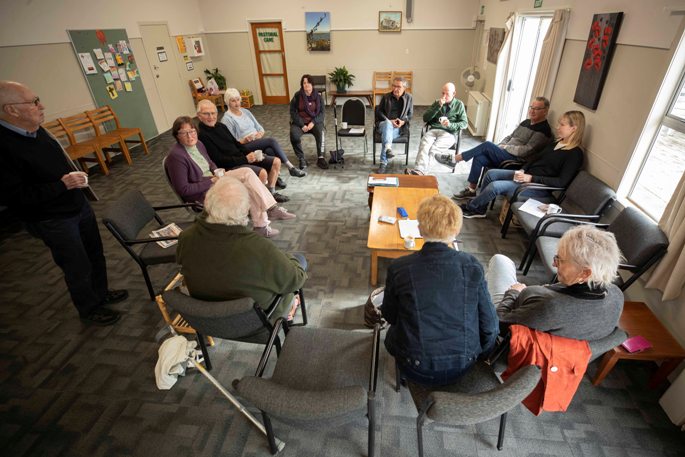To most, it's simply a room of people chatting. To speech therapist and AphasiaNZ community advisor Kate Milford, it's success worth celebrating.
'Aphasia is an invisible condition caused by damage to the language part of the brain,” says Kate, who coordinates Tauranga's weekly Aphasia support group.
'The person may have had a stroke or a brain tumour, a head injury or a more rare progressive type of aphasia. It's not a loss of intelligence, simply a reduced ability to express and understand written and spoken language – so to see the group talking without any help from me is amazing.”
Kate is hoping June's Aphasia Awareness Month generates more support and understanding.
'There are more people with aphasia than with Parkinsons,” says Kate. 'Most haven't heard of it and yet it's likely you know someone with aphasia.
'We're aware of the diseases but not the consequences.”
The main treatment is speech therapy and weekly support group meetings provide a safe space to practice. In Tauranga the group meets 11am-1pm on Mondays.
'It's important to have that feeling of belonging. It's a chance for people with aphasia to walk into a room of people who understand what they're going through. They can try to join in the conversation, and if they can't find their words, we might try to work it out together, shrug it off or have a laugh and it doesn't matter.”
When explaining the condition, Kate uses the image of a library that's been shaken around by an earthquake.
'Everything that used to be in order is now all jumbled up. It's not a speech problem it's a language problem – reading, writing, listening and talking. When you think about how much you use language, it's terrifying. You have words running through your head from the moment you wake up.”
The group is hoping Aphasia Awareness Month will give more people an understanding of what the condition is and how they could help.
'Allow more time for conversation,” says Kate. 'Most of us talk too fast and are so busy, but when you give someone with aphasia some time to find their words it can be a big help.
'Don't jump in too quickly to try to finish their thought for them. If it's incorrect, the wrong word can get stuck in their mind and make it harder to find the right one. Find somewhere quiet to chat and have a pen and paper handy just in case they find it useful to write a keyword.”
Kate says most of all, though, don't give up on friends with aphasia.
'When people lose their words, it can feel embarrassing for them and for their friends. Then their friends don't know how to react and might avoid meeting up, so it can become isolating. 'It's easy to say it's scary but people with aphasia still want to be part of the community.”
To know more about aphasia or support people affected by aphasia, contact Aphasia New Zealand Charitable Trust. Their national office is based in Tauranga. Visit: www.aphasia.org.nz or call 0508 APHASIA.

